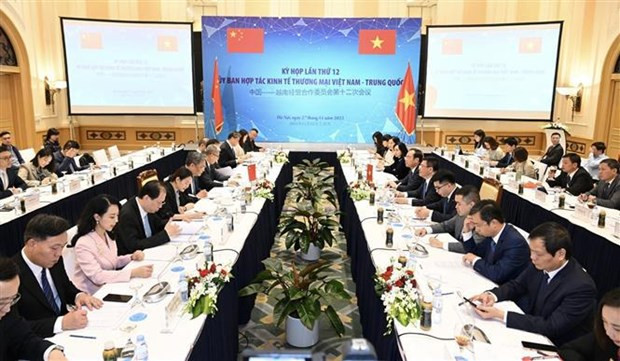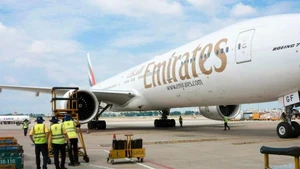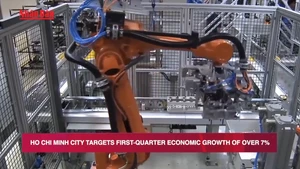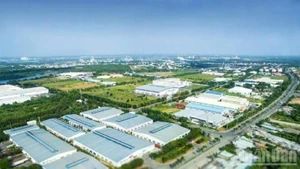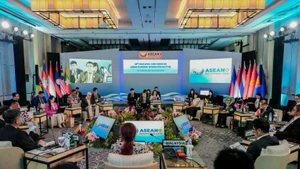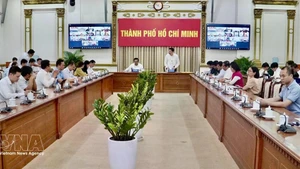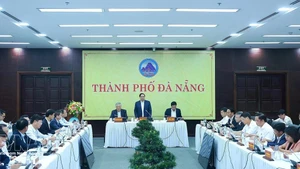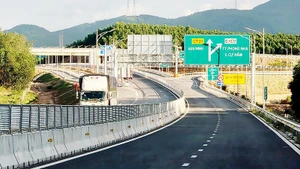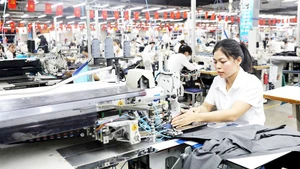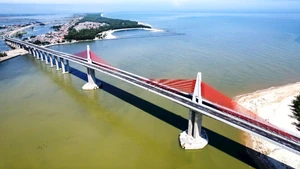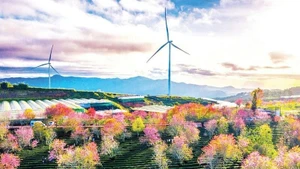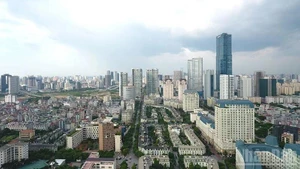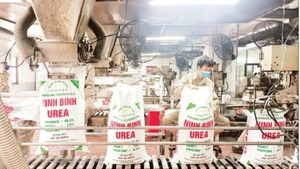In his speech, Dien said this is concrete evidence of the increasingly important role of the Vietnam - China economic cooperation and trade for each country's economy.
Dien suggested the Chinese side support Vietnamese businesses in building trademarks in China and open its market for more Vietnamese agricultural products, and urged the signing of a framework agreement on rice trade between the two nations.
The minister called on Chinese authorities to set a transition period for spiny lobsters imported into China, and expand the list of border gates between China and Vietnam that are allowed to import agricultural and aquatic products, and food.
Dien also mentioned Vietnam’s plan to complete procedures to establish a trade promotion office in Haikou, Hainan, China in 2023; and strengthen economic and trade cooperation and work coordination between the Ministry of Industry and Trade (MoIT) and Vietnamese localities and Chinese localities.
He urged the Chinese side to effectively implement signed agreements and support Vietnamese businesses to increase their presence, rent warehouses, and export goods through China's e-commerce pilot zones or free trade pilot zones.
For his part, the Chinese official stressed that the Chinese market has great demand and welcomes high-quality agricultural products from Vietnam.
The Chinese Ministry of Commerce will continue to coordinate and push the Chinese Customs to open the market for Vietnamese agricultural products, he affirmed.
Regarding problems in exporting spiny lobsters, Wang said that Vietnamese businesses need to urgently register production and packaging facilities with the Chinese Customs, while authorities of the two countries need to soon carry out inspection and assessment of businesses and cultivating areas in a direct or online form so that spiny lobsters of Vietnam can be exported to China.
For Vietnam’s proposal to coordinate customs activities to avoid the recurrence of goods congestion at border gates, Wang said that the Chinese Ministry of Commerce attaches great importance to and is ready to coordinate in implementing measures to facilitate customs clearance, thus ensuring the interests of Vietnamese farmers.
The Chinese side will provide a favourable business environment and create conditions for Vietnamese businesses to build a foothold in the Chinese marke, he said, expressing the joy that Vietnam has built national pavilions on some of major e-commerce platforms of China.
Economic and trade relations among Vietnamese and Chinese localities play an important role in promoting economic and trade cooperation between the two countries, Minister Wang affirmed, adding that the Chinese side highly values efforts by the MoIT to build cooperation mechanisms with Guangxi and Yunnan provinces of China.
The Chinese ministry will support the Vietnamese ministry in establishing cooperative relationships with Chinese localities with economic strengths and expanding relations between the two sides’ localities.
China supports Vietnam in setting up its trade promotion offices in China, he said, suggesting the Vietnamese side enhance exchange and reach agreements with authorities of localities where it plans to place offices.
He urged the two sides to discuss and push their Ministries of Foreign Affairs to speed up related procedures to establish a trade promotion office of Vietnam in Haikou.
Responding to the Chinese side's proposal, Dien stressed that the MoIT is willing to promote relevant, sectors and localities of Vietnam to coordinate in opening/upgrading border gates and building smart border gates in Lang Son. He expressed the hope that China will coordinate and share experiences in trade defense and e-commerce.
Regarding investment, the Vietnamese side proposed China continue to implement projects using the Mekong - Lancang Cooperation Special Fund.
Meanwhile, the Chinese side also shared the hope to promote digital economic cooperation and green development, industrial cooperation, improve business and investment environment with Vietnam.
On this occasion, the two sides also discussed issues related to cooperation, negotiations to join, upgrade, and implement commitments within multilateral frameworks.
They reached many consensuses to promote economic and trade cooperation between Vietnam and China in the new period and agreed on a plan to organise the 13th meeting in China.
At their retreat before the meeting, the two ministers affirmed their determination to coordinate closely and make more efforts to effectively implement the common perceptions reached by the two countries' senior leaders on expanding bilateral economic and trade ties recently.
China has been Vietnam's largest trading partner and goods supplier, and the second biggest export market of the Southeast Asian nation for many years.
Notably, Vietnam became the fourth biggest trade partner of China in the world in 2022, and also China's largest in ASEAN.
The Vietnam - China Economic and Trade Cooperation Committee is a periodic and rotating cooperation mechanism between the two governments. This is the first meeting held in the face-to-face form after 3 years of interruption due to the COVID-19 pandemic.
